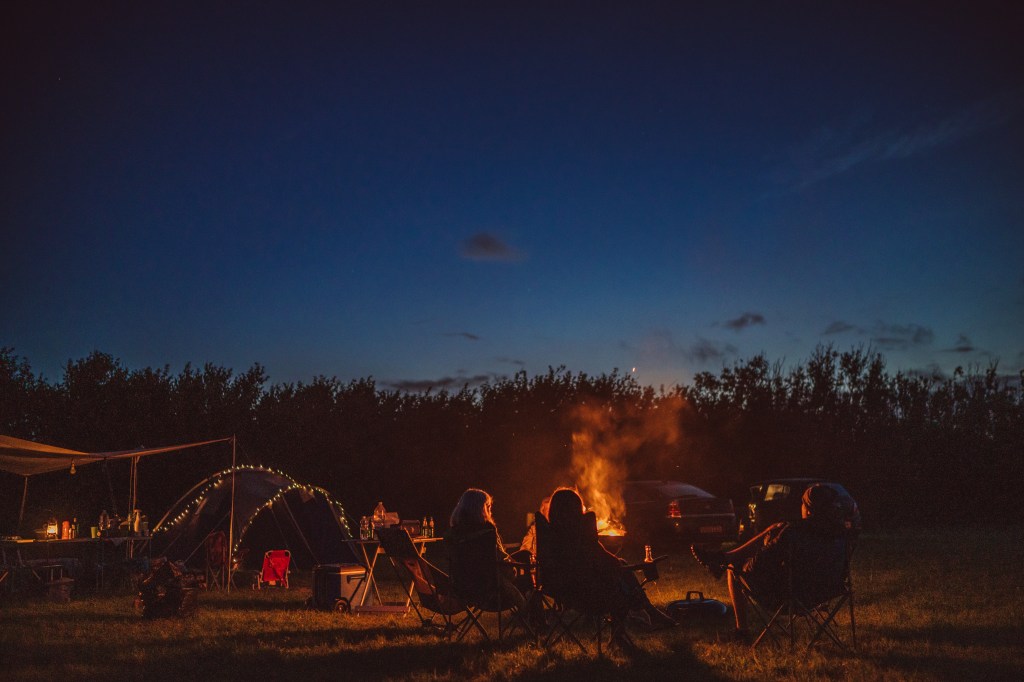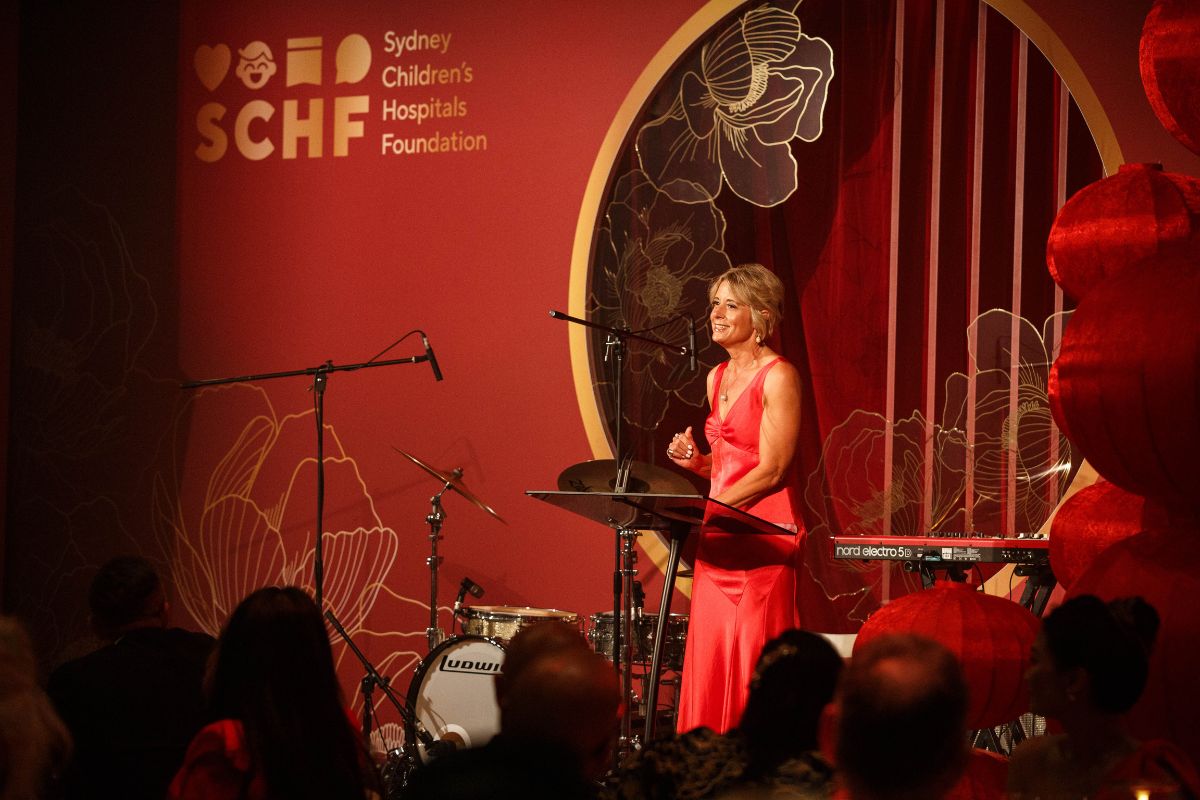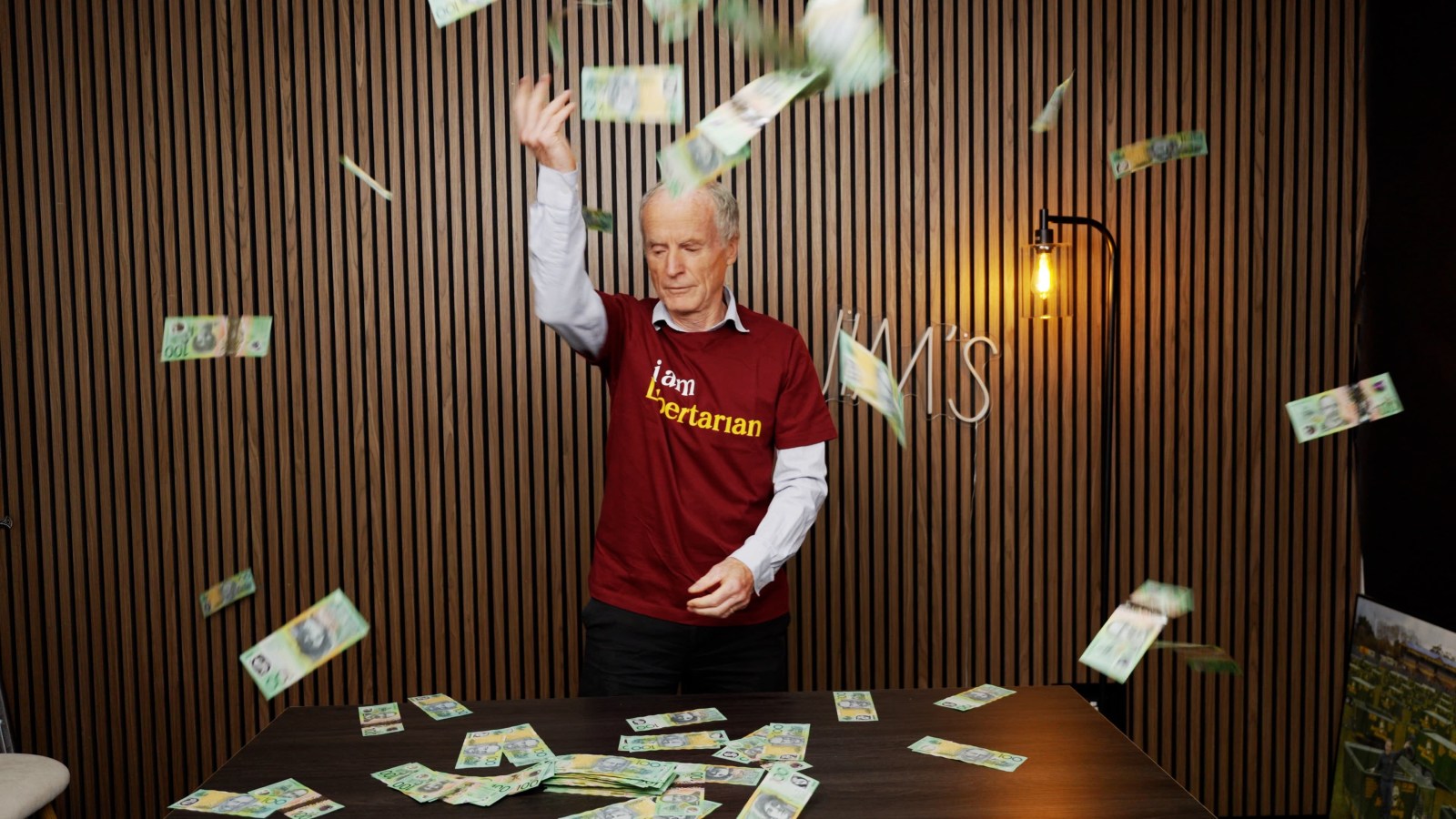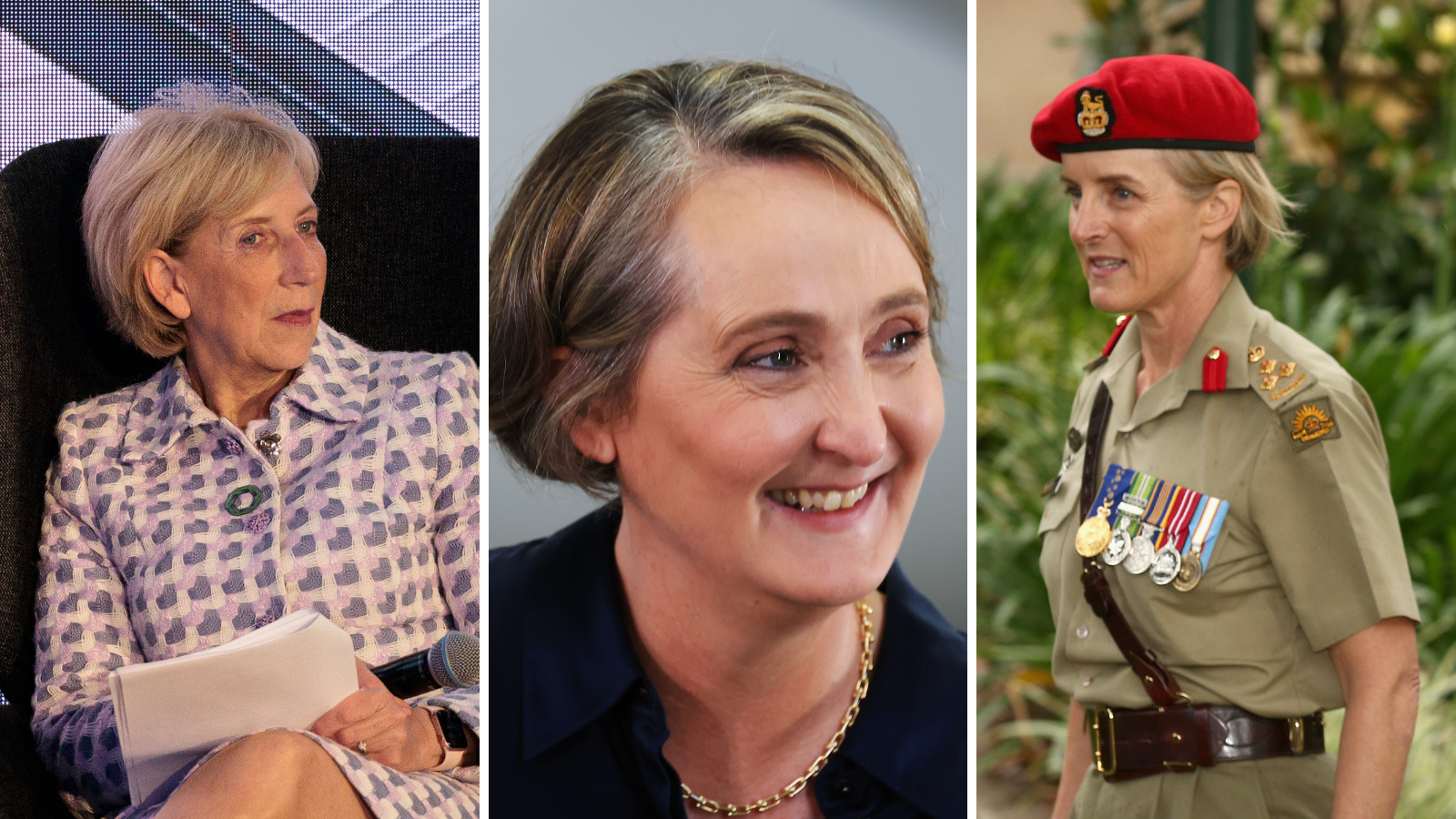When I took my first steps into the world of business some 25 years ago, I didn’t anticipate I would one day be trying to reimagine the economy from inside a very hot tent in the Glenworth Valley. But here I am, in the throes of the hottest October on record, trying to reimagine the economy from inside a tent.

More to the point, here we are: over 250 Australian business leaders, gathered to collectively reimagine the economy on stunning Darkinjung Country at B Corp Assembly. This is the largest gathering of B Corps in Australia and Aotearoa New Zealand, and the tents are intentional – camping is one way of keeping this group of business leaders away from their desks, devices and deadlines.
Over the past couple of days, I’ve sat in on hard-nosed conversations about balancing corporate purpose with profit. We’ve heard smaller B Corps call on larger ones to lift their commitments, to use procurement as a tool to encourage innovation and problem solving, and to use their scale to influence policy change.
We’ve had Elders – Indigenous and non-Indigenous alike – remind us that the work of striving for fairer economies and systems is not new. And we’ve had young people tell us that they’ll be inheriting a world shaped by the size of our collective ambition, and that today’s profits have no right to be tomorrow’s problems.
Back in the office, reading the headlines on ESG, corporate responsibility and sustainability, you’d be forgiven for thinking that business’ ambition on this whole ‘purpose’ thing is waning. But you’d be wrong. Geopolitical instability, unpredictable markets, cost of living challenges, increasing regulation and global trade disruption makes the swelling ranks of B Corp and the existence of this Assembly all the more remarkable.
There are a great many reasons for business leaders to stick to business as usual, to focus on the fundamentals, and to not be here.

And yet in our hot tent, on our first night together, we announced North Melbourne Football Club as the first B Corp sports club in Australia, and the second in the world. Their certification comes in the wake of other iconic Australian businesses such as R.M. Williams, Blackmores and Lion all earning their certification in the past year. This momentum follows the early innovators like KeepCup, Australian Ethical and Intrepid Travel. Since 2012, hundreds of small and large businesses across the country have designed their businesses to the exacting standards B Corps sets (and they keep meeting them, even as we continue to lift the bar).
Take the Sussan Group, a B Corp for whom sustainability isn’t a headline claim or a branding exercise but baked into the business model, operations and supply chains. Their Better Cotton initiative is seeking to improve cotton farming practices globally, and their Responsible Fibres Sourcing Document is designed to help Australian consumers understand exactly where the materials they’re wearing come from.
Or the likes of Intrepid Travel, whose recently updated climate action plan involves ditching offsets – once the poster child of corporate climate action – in favour of decarbonisation, introducing lifecycle emissions targets to their products, and broadly acknowledging that their climate work to date hasn’t been enough.
These examples don’t just demonstrate exceptional climate leadership, but exceptional leadership, full stop. It’s difficult, nuanced and imperfect. It rises above political cycles, as the climate wars in Australian politics continue to rage. It isn’t hiding behind flaky targets, fake answers or vague media releases. It’s a human approach to complex problems, at a time when the world sometimes forgets that imperfect solutions are better than no action at all.
This work is made all the more impressive when you consider the fact that these organisations are profitable enterprises – proving you can do good, whilst doing well. The ambition (and success) of B Corps like these is influencing businesses at the highest levels all over the world – over one million people are now employed by B Corps globally, and B Corps contribute nearly $25 billion to the Australian and Aotearoa New Zealand economy.
As we closed our time at Assembly, we gathered (in a tent) and spoke with ethicist Dr. Matt Beard about how to build a system that cares – sparked by a moving video of my late friend and B Lab co-founder Andrew Kassoy, who spoke about the inherent carelessness baked into capitalism. Dr. Beard encouraged us to consider the difference between caring about something and caring for something.
As individuals and as businesses, we care about a great many things: our teams, the places we live, the suppliers we work with, our customers, how and where we source our products from. But what if we started caring for those very same things? What difference would that make to our businesses and the natural systems they rely on?
It makes sense, but it’s not business as usual. In business, problems are often only seen in a two- or three-year timeframe. Projects and products either succeed or fail. A business is either growing or struggling, complying with regulations or breaching them. We are so used to short-term, binary thinking that we fail to recognise that real life is (and never was) either of those things. At Assembly we are reminded that our actions have generational impacts; our world is complex; and progress is rarely linear, neat or immediately comprehensible.
Every business leader in Australia has a wonderful capacity for imagination – it’s a prerequisite for running a successful organisation in the modern world. So why wouldn’t we reimagine our businesses and our economies, with care, community and compassion at their core? The people at Assembly see this as just good business, and I hope next year we need a bigger tent.
About B Lab
B Lab Australia and Aotearoa New Zealand (AANZ) is part of B Lab, a global not-for-profit network working to build an inclusive, equitable, and regenerative economy that benefits people, communities, and the planet.
B Lab is best known for certifying B Corporations (B Corps), which are for-profit companies that are independently verified to meet high standards of social and environmental performance, accountability, and transparency.
To date, there are more than 750 B Corps across Australia and Aotearoa New Zealand, employing over 56,000 people and generating over $27 billion AUD in revenue for the local AANZ economy.
Andrew Davies is the CEO of B Lab Australia and Aotearoa New Zealand, leading the region’s growing B Corp community and its push for better business.
Look back on the week that was with hand-picked articles from Australia and around the world. Sign up to the Forbes Australia newsletter here or become a member here.


